Berset talks EU-Swiss framework deal and health in Davos
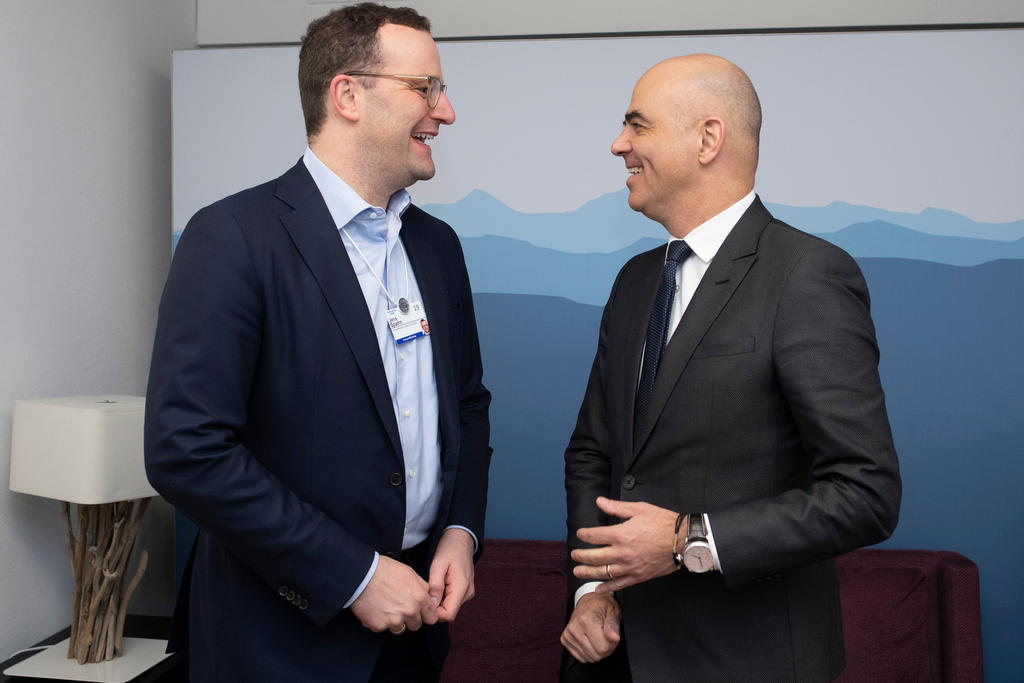
There is greater understanding among Europeans of Switzerland’s unique political system compared to previous years, declared Interior Minister Alain Berset after several days of bilateral meetings at the World Economic Forum (WEF) in the Swiss resort of Davos.
Addressing reporters in Davos on Thursday, Berset said he had used bilateral talks with leaders and officials to discuss the Swiss-EU framework agreement and to underline the Swiss challenges.
“When I explained our direct democracy system to people five or seven years ago, they used to just stare at me with big eyes,” Berset told reporters in the resort in eastern Switzerland, adding that officials’ understanding had changed considerably.
Over the past five years, the EU and Switzerland have been locked in difficult negotiations on a framework agreement to cement future ties currently governed by numerous bilateral accords. The government has yet to take a position and is carrying out a public consultation on the agreement proposed by the EU in December.
Health and German doctors
Among the other issues covered in Davos, Berset said health matters seemed to have grown in importance at WEF. He met Alfredo Moreno, the Minister of Social Development from Chile, who faces similar demographic challenges to those in Switzerland, such as how to look after an ageing population.
Berset also held talks with his Dutch and British counterparts, Bruno Bruins and Matt Hancock, on the digital transformation of the health sector.
“We may be a little slower than others in this area, but I would say we are more solid and stable,” said the Swiss minister.
Berset also met German Minister of Health Jens Spahn to discuss the issue of German medical specialists who work in Switzerland. Spahn recently expressed his regret that numerous doctors and nurses were migrating to Switzerland and wants a new regulation to stop to this flow. Germans account for more than 50% of foreign doctors in Switzerland and many work in Swiss hospitals.
The Swiss minister concluded that on a personal level, he felt it was important to be present in Davos, as he could make numerous contacts in a short space of time.
“It’s always struck me how much human contact counts; and for that you have to meet each other. Personal meetings make a difference,” he said.
Other Swiss ministers, Ueli Maurer (finance), Ignazio Cassis (foreign affairs) and Guy Parmelin (economics) were also present in Davos this week.
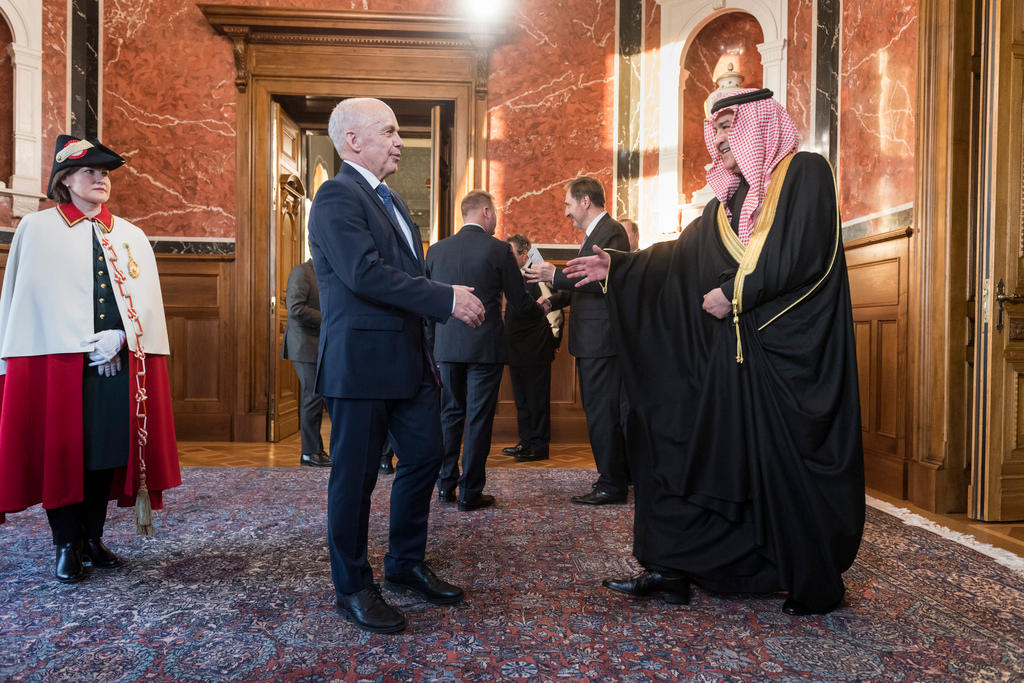
More
Swiss president wants to do business with Saudi Arabia

In compliance with the JTI standards
More: SWI swissinfo.ch certified by the Journalism Trust Initiative
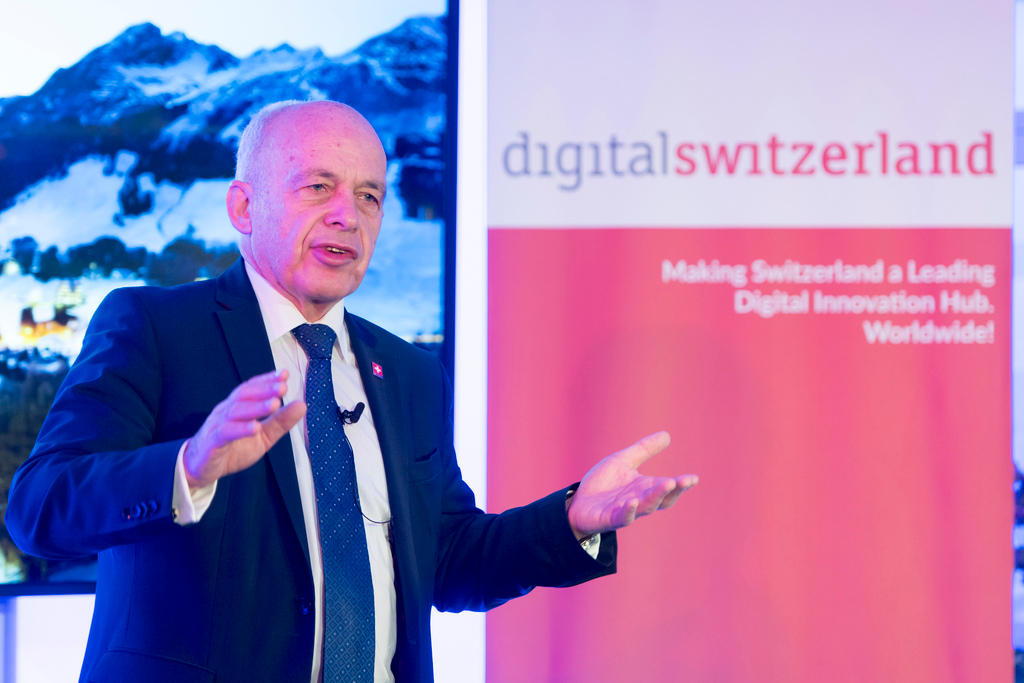
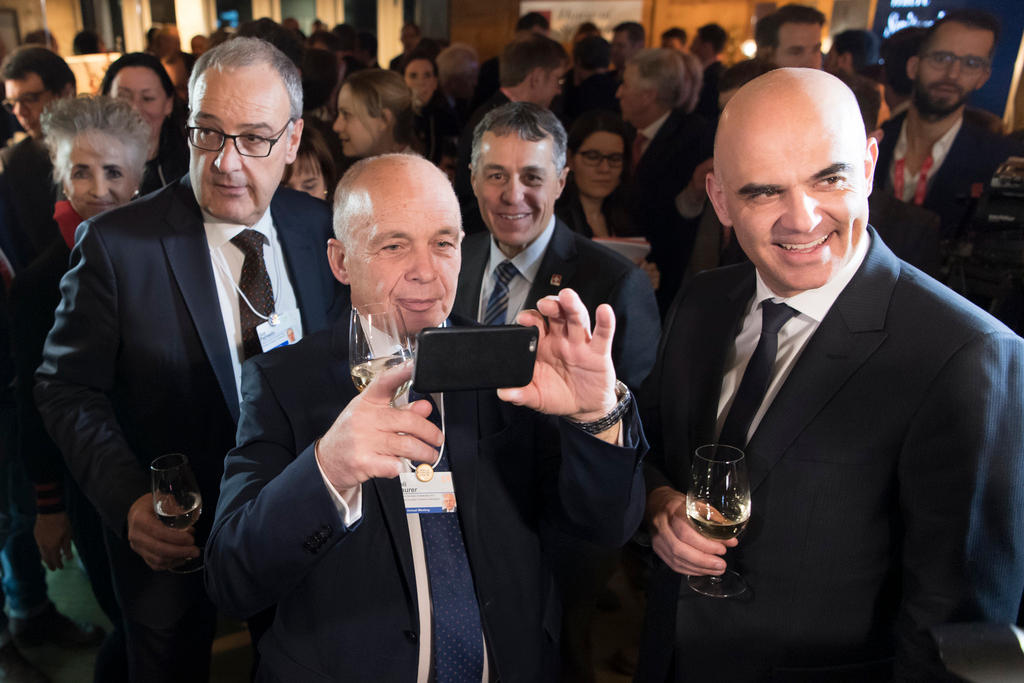
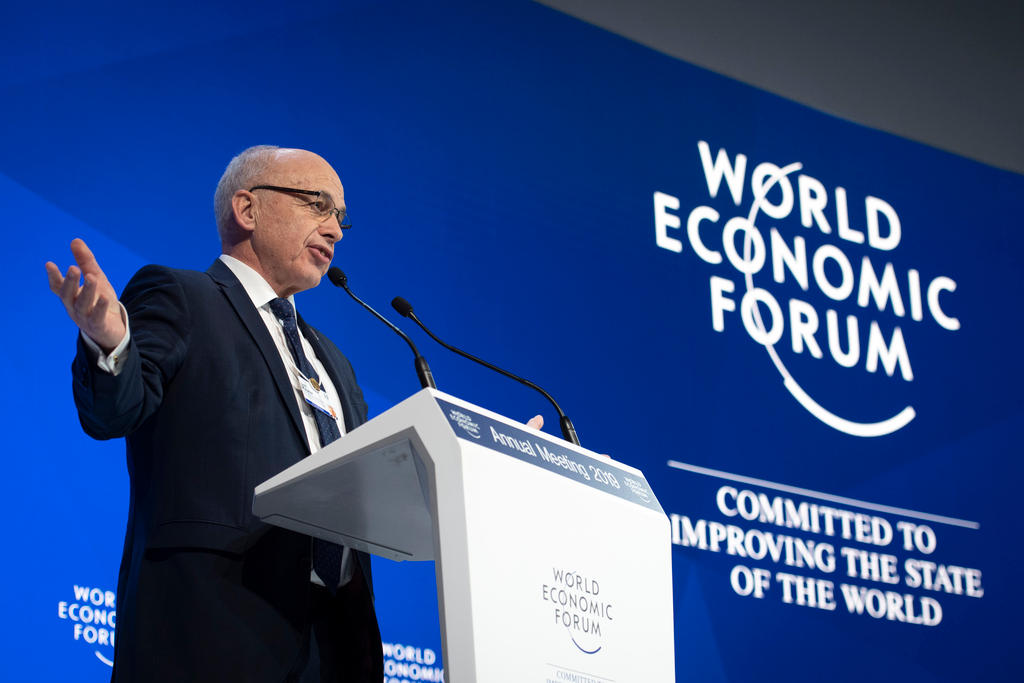
You can find an overview of ongoing debates with our journalists here. Please join us!
If you want to start a conversation about a topic raised in this article or want to report factual errors, email us at english@swissinfo.ch.